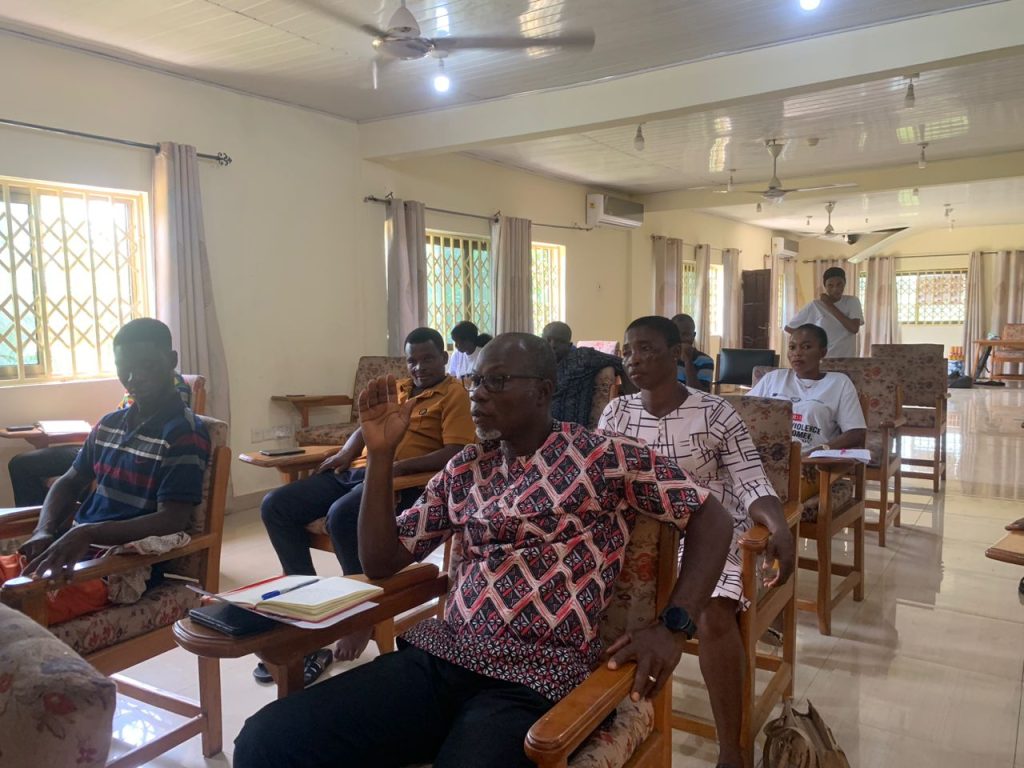By Samuel Akumatey
Adaklu Waya (V/R), Nov. 29, GNA – Non-profit, Action Aid Ghana’s project to promote access to safe water in the Adaklu District of the Volta Region has enhanced stakeholder commitment.
As part of efforts for the realisation of gender responsive public services, the audit is being undertaken by the NGO’s Young Urban Women’s Movement (YUWM), and four communities in the agrarian district currently benefiting from the project, which begun in 2022.
Findings are shared with stakeholders, building further, responsibility and commitment to addressing the challenges.
Ms Thelma Asabre, Project Officer said at a recent follow-up meeting in the district, that the Organisation considered stakeholder response crucial, and would therefore sustain needed engagements among the various actors.
The meeting was held at the District Assembly, and attended by the Chief Executive, various Assembly Members and engineers.
“Action Aid wants women to spend less time with unpaid care work…” she said at the opening, adding that water remained a major factor for inclusivity and hence the efforts at ensuring sustainable access.
Adama Fusseni, Chairperson of the Movement in the Volta Region, who led a fact-finding mission across the various communities to access the challenges, said most communities relied on natural water sources including streams and ponds, while irrigation dams in the area also benefitted others.
Using indicators such as the availability, accessibility, distance, time spent, quality, quantity, and affordability, she updated stakeholders on the present outlook in the district.
The probe also indicated the location, safety and security at water sources, and also acceptability, and chemical properties.

Communities such as Adaklu Kpetoe relies on an irrigation dam, but also has a borehole provided by an NGO.
Other communities probed have no borehole facilities and suffer thirst in the dry seasons.
Distance from most water sources indicates that community members spend an average of one hour acquiring water.
The situation remains unfriendly for women especially due to risks of insecurity as most water sources are located thickets where fear of wild animals, and human attackers linger.
These waters are muddy and not clean, and ponds maintain high bacteria count while streams continue to serve as sites for public laundry, affecting water quality and potability.
The community of Adaklu Kpetsu sources water from an underwater bridge, which is difficult to access, and they are compelled to buy packed water from neighbouring communities.
The YUWM Chairperson spoke of how the cost of water and the transportation remained a major challenge to access and revealed that a borehole there has been abandoned over its taste.
Ms. Fusseni reported lack of interventions in the water access in most areas, and said the effects of exhaustion, and the loss of school hours to water sourcing activities remained a major problem.
She said locals continue to blame the local assembly for neglect.
Mr. Walter Zuh, District Chief Executive of Adaklu said the Assembly remained proactive in ensuring water access, and that “stakeholders are doing their best”.
The DCE would reference broadened interventions by the government including a five-district water project ongoing in phases, to cover unserved communities.
He assured stakeholders that issues related to boreholes had been flagged and would be worked upon.
“We will do whatever we can to ensure water is available in all areas,” he added, further assuring that the Assembly would explore possible alternatives to as the dry season approaches.
Engineers of the Assembly, and who also were present at the meeting spoke of difficulty in getting water sources, and sited deep seated water beds.
City engineers also raised issues on revenue from paid water systems, saying the bigger problem remained the reluctance to pay for water which affected regular supply.
GNA